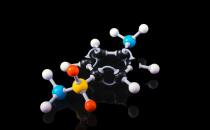
Chemical Reactions - Year 10 CLE

Description:
In this investigation, four different types of chemical reactions are performed one at a time. Students then test their understanding by performing six further reactions and for each one: predict the products, identify the type of reaction and write balanced word and symbol equations.
This CLE represents an extension to what is required at Year 10 in Chemical sciences. The Australian Curriculum does not require students to write formula or write and balance symbol equations.
Learning intentions
Students will be able to:
- observe and understand different types of chemical reactions
- identify the reactants in a chemical reaction and relate them to the reaction type
- predict the products for a given chemical reaction type
- write word and balanced symbol equations for reactions
- construct conclusions based on evidence.
Australian Curriculum v9 Codes: AC9S10U07 (Year 10)
Additional Information
The Connected Learning Experience Resource
A Connected Learning Experience (CLE) is a resource package designed to support the use of inquiry investigations in the classroom.
Each CLE may not encompass all the concepts and skills addressed in the specific content descriptions outlined by the Australian Curriculum: Science for that Year level. The Learning Intentions clearly define the aims and objectives of the CLE.
Year 10 Achievement Standard
This lesson sequence provides opportunities to gather information about students’ achievement of specific components in the standards (which are bolded in the statements below).
By the end of Year 10, students analyse how the periodic table organises elements and use it to make predictions about the properties of elements. They explain how chemical reactions are used to produce particular products and how different factors influence the rate of reactions. They explain the concept of energy conservation and represent energy transfer and transformation within systems. They apply relationships between force, mass and acceleration to predict changes in the motion of objects. Students describe and analyse interactions and cycles within and between Earth’s spheres. They evaluate the evidence for scientific theories that explain the origin of the universe and the diversity of life on Earth. They explain the processes that underpin heredity and evolution. Students analyse how the models and theories they use have developed over time and discuss the factors that prompted their review.
Students develop questions and hypotheses and independently design and improve appropriate methods of investigation, including field work and laboratory experimentation. They explain how they have considered reliability, safety, fairness and ethical actions in their methods and identify where digital technologies can be used to enhance the quality of data. When analysing data, selecting evidence and developing and justifying conclusions, they identify alternative explanations for findings and explain any sources of uncertainty. Students evaluate the validity and reliability of claims made in secondary sources with reference to currently held scientific views, the quality of the methodology and the evidence cited. They construct evidence-based arguments and select appropriate representations and text types to communicate science ideas for specific purposes.
Relevant prior curriculum knowledge
Science / Year 9 / Science understanding / Chemical sciences
Content description
Chemical reactions involve rearranging atoms to form new substances; during a chemical reaction mass is not created or destroyed (ACSSU178)
Chemical reactions, including combustion and the reactions of acids, are important in both non-living and living systems and involve energy transfer (ACSSU179)
- Year 10 > Science Inquiry Skills > Communicating > Communicate scientific ideas and information for a particular purpose,... > ACSIS208
- Year 10 > Science Inquiry Skills > Processing and analysing data and information > Use knowledge of scientific concepts to draw conclusions that are consistent... > ACSIS204
- Year 10 > Science Understanding > Chemical Sciences > Different types of chemical reactions are used to produce a range of products... > ACSSU187

